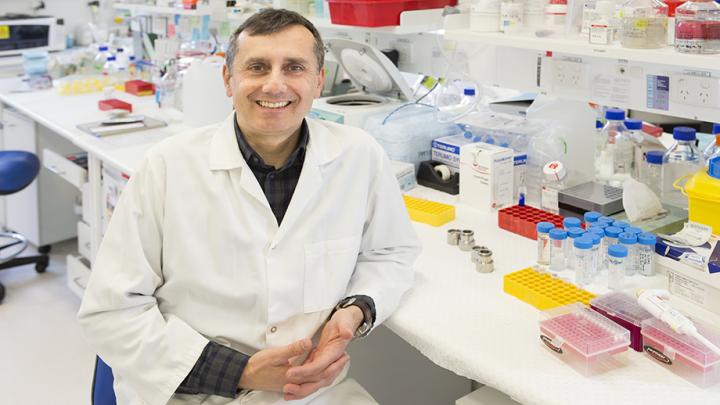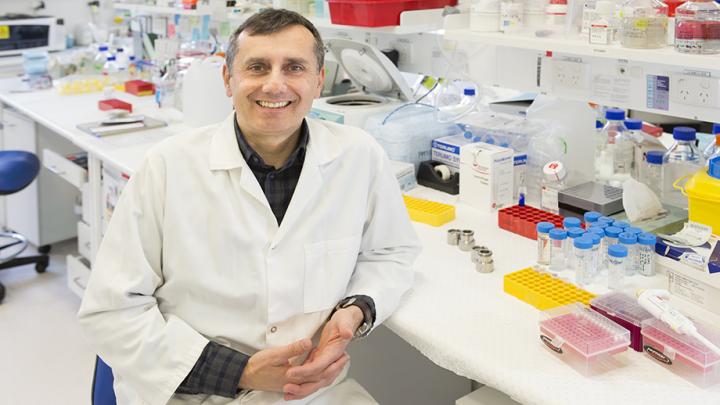
Research led by The Australian National University (ANU) has uncovered new insights into how the human genome gets through the daily grind with the help of RNA-binding proteins, in a discovery which could ultimately lead to a cure for heart disease.
Lead researcher Professor Thomas Preiss from The John Curtin School of Medical Research at ANU said the finding opens new avenues of research into RNAs – short-lived copies of the genetic information stored in DNA.
"In studying how RNA-protein interactions govern genome function in the heart, we saw potential for both the generation of knowledge and ultimately the development of new therapy," Professor Preiss said.
"So we endeavoured to establish a collection of RNA-binding proteins that are active in heart muscle cells." Heart disease is a leading cause of death in Australia with an average one death due to heart disease in Australia every 27 minutes.
All cellular life uses DNA to store genetic information and to pass it on through the generations. But the information is useless unless it is copied into the chemically similar but more versatile nucleic acid molecules called RNA.
RNA carries the code for making proteins, the bricks and mortar of life, but it also has noncoding regulatory roles that are particularly important in architecturally complex beings such as humans.
"In recent years we have even come to think of the genome as an RNA-making machine," Professor Preiss said.
"Much research is rightfully directed at understanding RNA. But RNA does not act alone, rather it functions in coordination with RNA-binding proteins."
The research team identified over one thousand such proteins by using innovative proteomic methods, developed by Professor Matthias Hentze and colleagues from EMBL, which is Europe's flagship laboratory for the life sciences.
The new methods allowed them to catch proteins in the act of binding to RNA, and also identify what part of the protein was in contact with the nucleic acid. This led them to identify new types of protein surfaces capable of interacting with RNA.
The process enabled the researchers to identify hundreds of proteins that were not known to bind to RNA.
"Many of these proteins already have a well understood day job, for example in cellular metabolism, and yet here they were interacting with RNA. We are now trying to understand why they engage in this moonlighting activity," Professor Hentze said.
Research team member Dr Yalin Liao, also from The John Curtin School of Medical Research, said the project revealed that dozens of metabolic enzymes bound RNA.
"We started with this project thinking that we will find new proteins that help the RNA to function. But we are now also considering that in some cases there could be RNAs that help the protein to function," Dr Liao said.
"Our compendium of RNA-binding proteins in the heart will provide many new angles for research and could ultimately lead to a cure for heart disease."
###
The study was supported by grants from the National Health and Medical Research Council of Australia and the Science and Industry Endowment Fund.
The study was published in the journal Cell Reports: http://dx.doi.org/10.1016/j.celrep.2016.06.084
Media Contact
Madeleine Nicol
[email protected]
61-261-252-577
@ANUmedia
http://www.anu.edu.au/media





